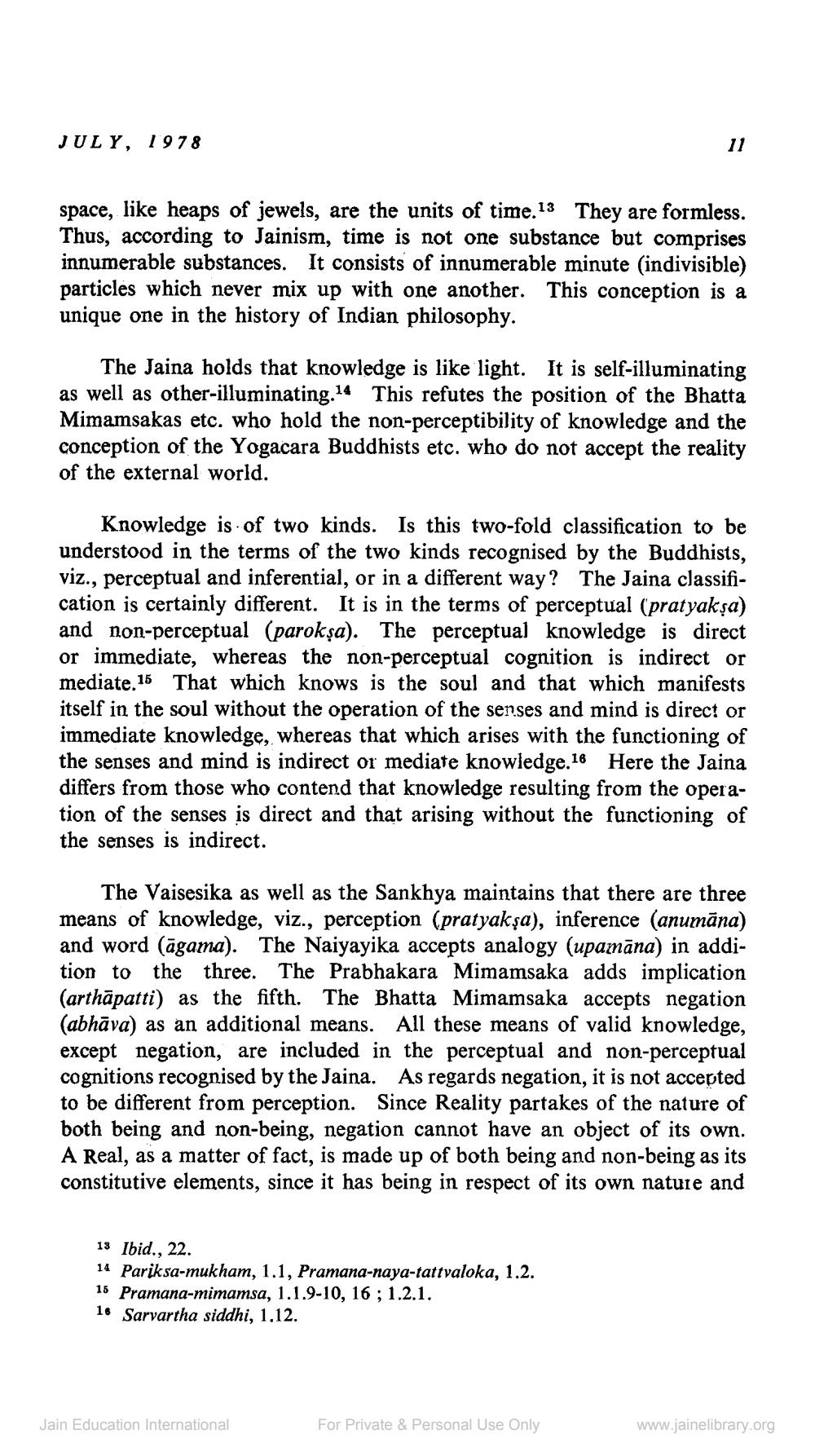________________
JULY, 1978
space, like heaps of jewels, are the units of time.13 They are formless. Thus, according to Jainism, time is not one substance but comprises innumerable substances. It consists of innumerable minute (indivisible) particles which never mix up with one another. This conception is a unique one in the history of Indian philosophy.
The Jaina holds that knowledge is like light. It is self-illuminating as well as other-illuminating.14 This refutes the position of the Bhatta Mimamsakas etc. who hold the non-perceptibility of knowledge and the conception of the Yogacara Buddhists etc. who do not accept the reality of the external world.
11
Knowledge is of two kinds. Is this two-fold classification to be understood in the terms of the two kinds recognised by the Buddhists, viz., perceptual and inferential, or in a different way? The Jaina classification is certainly different. It is in the terms of perceptual (pratyakṣa) and non-perceptual (parokṣa). The perceptual knowledge is direct or immediate, whereas the non-perceptual cognition is indirect or mediate.15 That which knows is the soul and that which manifests itself in the soul without the operation of the senses and mind is direct or immediate knowledge, whereas that which arises with the functioning of the senses and mind is indirect or mediate knowledge.16 Here the Jaina differs from those who contend that knowledge resulting from the operation of the senses is direct and that arising without the functioning of the senses is indirect.
The Vaisesika as well as the Sankhya maintains that there are three means of knowledge, viz., perception (pratyakşa), inference (anumāna) and word (āgama). The Naiyayika accepts analogy (upamāna) in addition to the three. The Prabhakara Mimamsaka adds implication (arthapatti) as the fifth. The Bhatta Mimamsaka accepts negation (abhāva) as an additional means. All these means of valid knowledge, except negation, are included in the perceptual and non-perceptual cognitions recognised by the Jaina. As regards negation, it is not accepted to be different from perception. Since Reality partakes of the nature of both being and non-being, negation cannot have an object of its own. A Real, as a matter of fact, is made up of both being and non-being as its constitutive elements, since it has being in respect of its own nature and
13 Ibid., 22.
14 Pariksa-mukham, 1.1, Pramana-naya-tattvaloka, 1.2.
15 Pramana-mimamsa, 1.1.9-10, 16; 1.2.1.
16 Sarvartha siddhi, 1.12.
Jain Education International
For Private & Personal Use Only
www.jainelibrary.org




